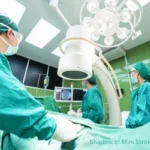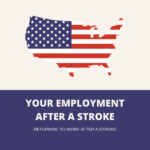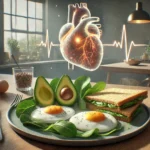Inspiring Reads for a Stronger Comeback
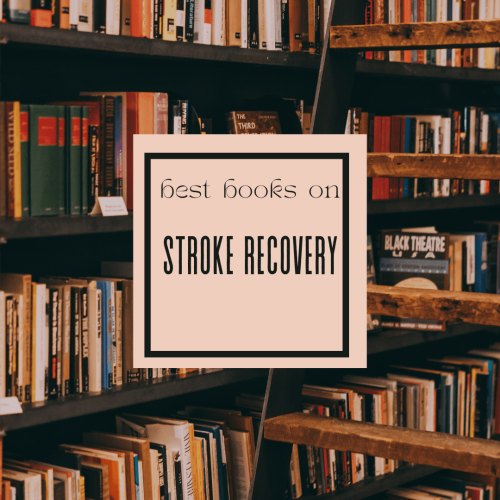
Recovering from a neurological event requires time, determination, and access to reliable guidance. Whether navigating this path personally or guiding someone else, accurate information can make a significant difference. Resources on rehabilitation provide practical strategies, useful advice, and emotional reassurance to manage physical, mental, and cognitive challenges along the way. Below are several insightful reads, each offering valuable perspectives and expert guidance to support progress throughout this journey.
1. Stronger After Stroke: Your Roadmap to Recovery by Peter G. Levine
Peter G. Levine’s widely respected book is often seen as a leading resource for rehabilitation. As a neurorehabilitation expert, he explains underlying science in a way that is both accessible and empowering. This book includes practical strategies for rebuilding strength, improving movement, and regaining independence.
What sets this resource apart is its focus on neuroplasticity—brains’ ability to reorganize and adapt after injury. Levine provides detailed, step-by-step exercises and techniques to help individuals maximize progress. Common challenges such as spasticity, fatigue, and emotional difficulties are addressed, with practical solutions offered for each. For those seeking a comprehensive guide that blends scientific insight with real-world application, this book is an excellent choice.
2. My Stroke of Insight: A Brain Scientist’s Personal Journey by Jill Bolte Taylor
Dr. Jill Bolte Taylor’s memoir is a deeply personal and inspiring account of a life-changing experience. As a neuroanatomist, she brought a unique perspective when experiencing a severe brain event at age 37. Her writing guides readers through moment-by-moment experiences, recovery journey, and profound insights gained along the way.
Taylor’s story highlights human resilience. She describes relearning to walk, talk, and process thoughts, offering hope to others facing similar challenges. Focus on mindfulness, self-compassion, and strong community makes this account essential for anyone navigating major transformation. It serves not only as a roadmap for recovery but also as a celebration of mind’s remarkable capacity to adapt and regain function.
3. Brain That Changes Itself: Stories of Personal Triumph from the Frontiers of Brain Science by Norman Doidge
While not focused exclusively on recovering from brain injuries, Norman Doidge’s Brain That Changes Itself explores neuroplasticity—brains’ ability to adapt and rebuild. Doidge shares compelling stories of individuals overcoming obstacles through innovative therapies and persistence.
This resource offers inspiration for anyone who feels progress is limited by time or injury severity. Doidge’s work highlights remarkable adaptability, giving hope to those feeling stuck in their journey. It provides an eye-opening perspective that fosters deeper appreciation for what is possible.
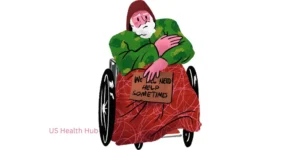
4. Healing the Broken Brain: Leading Experts Answer 100 Questions About Stroke Recovery by Dr. Mike Dow and David Dow
Authored by brothers Dr. Mike Dow, a psychotherapist, and David Dow, who has firsthand experience with this condition, Healing Broken Brain combines professional expertise with personal insights. Presented in a Q&A format, it addresses 100 commonly asked questions about recovery and regaining abilities.
This format makes this book highly user-friendly, allowing readers to quickly find answers to pressing concerns. Topics include physical rehabilitation, speech therapy, emotional well-being, and strategies for navigating daily challenges. Dow brothers’ approach is both informative and compassionate, making this work a valuable resource for survivors and families.
5. After a Stroke: 300 Tips for Making Life Easier by Cleo Hutton
Cleo Hutton’s book offers practical, straightforward guidance for adjusting to life after a major medical event. Drawing from personal experience, she understands daily challenges faced along the journey. Topics include handling medications, modifying living spaces, managing fatigue, and improving communication.
What stands out in this resource is its focus on small, actionable steps that create meaningful change in everyday life. Hutton’s tone is welcoming and encouraging, making it feel like advice from a trusted friend. For anyone seeking something both useful and inspiring, this is an excellent choice.
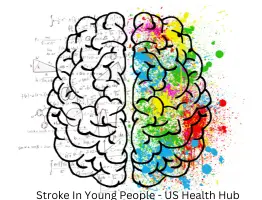
6. Stroke Diaries: A Guide for Survivors and Their Families by Olajide Williams, MD
Dr. Olajide Williams, a neurologist and specialist, brings extensive clinical expertise to his book. It serves as a comprehensive resource for survivors and families, covering medical, emotional, and practical aspects of recovery.
Dr. Williams shares real-life stories to make key points relatable and engaging. Medical concepts are explained clearly, allowing readers to understand reasons behind progress. The book also provides actionable guidance on preventing future complications, an important factor for long-term well-being.
7. Stroke Recovery Book: A Guide for Patients and Families by Kip Burkman, MD
Dr. Kip Burkman’s guide is another valuable resource for survivors and loved ones. Written in a clear, easy-to-understand style, it covers a full journey, from initial treatment stages to long-term rehabilitation.
Dr. Burkman emphasizes a multidisciplinary approach to recovery, highlighting contributions of physical therapists, occupational therapists, speech therapists, and other professionals. Emotional and psychological aspects are also addressed, with guidance on coping with depression, anxiety, and other common challenges.
8. Hope After Stroke for Caregivers and Survivors: Holistic Guide to Getting Your Life Back by Tsgoyna Tanzman
Tsgoyna Tanzman’s in-depth resource takes a whole-person approach, emphasizing emotional and spiritual well-being. Drawing from personal experience and advocacy, she provides practical insights for rebuilding a meaningful life after such a challenge.
This resource is particularly valuable for its emphasis on self-care and mental well-being. Tanzman encourages readers to foster a positive mindset, set realistic goals, and appreciate small victories. Her compassionate approach makes it a source of comfort and inspiration for both survivors and caregivers.
9. Living with Stroke: A Guide for Families by Richard C. Senelick, MD
Dr. Richard Senelick’s resource is designed for families and those assisting a loved one. It provides insights on guiding someone through recovery, covering medical knowledge and practical advice for daily routines.
Writing is clear and empathetic, making complex topics accessible without a medical background. Practical tips include creating a nurturing home environment and navigating healthcare systems. For anyone assisting a loved one, this book serves as an excellent starting point.
10. Stroke Recovery Workbook: A Comprehensive Guide to Brainstorming Your Way Out of Stroke by Dr. Amy Ellison and Dr. Sarah Thompson
For individuals who prefer a hands-on approach, this workbook provides interactive exercises alongside educational content. Created by two experienced neuropsychologists, it encourages active participation in a recovery journey.
Content includes cognitive exercises, journaling prompts, and goal-setting activities to promote growth. It serves as a practical tool for tracking progress and sustaining motivation throughout recovery. A structured format allows a personalized approach, adapting to unique needs and goals.
What types of reading materials are most beneficial for individuals regaining their abilities after a health setback?
Various types of written materials can assist individuals striving to regain their abilities after a significant medical event.
Personal Stories & Memoirs: Firsthand accounts inspire by highlighting real-life journeys of resilience. Books like Stronger After Stroke by Peter Levine share stories of perseverance and triumph.
Guides on Therapy & Rehabilitation: Informative resources like My Stroke of Insight by Jill Bolte Taylor offer medical perspectives along with personal experiences.
Cognitive & Speech Training Workbooks: Materials like The Brain That Changes Itself by Norman Doidge explain how the mind can adapt and develop new pathways.
Mindfulness & Emotional Well-Being: Writings on meditation and stress management, such as The Miracle of Mindfulness by Thich Nhat Hanh, assist with emotional balance.
Final Thoughts
Healing is a deeply personal and often challenging journey, but it does not have to be faced alone. Resources listed above provide knowledge, inspiration, and practical guidance to navigate each stage of recovery. Whether seeking scientific insights, emotional guidance, or actionable strategies, there is something on this list suited to individual needs.
Healing is not a linear process, and it is okay to take progress one step at a time. Celebrate achievements, no matter how small, and make use of available resources. With appropriate tools and a caring community, life can be rebuilt, and hope restored after this challenge.

